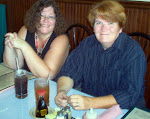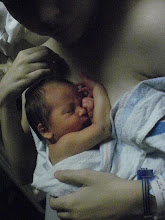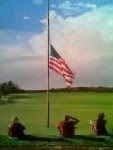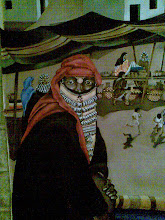Thursday night was my Cultural Competency class and we watched a second video on racism called "The Way Home". This video was comprised of 64 women organized into eight racially and ethnically defined “Councils.” The eight councils represented Indigenous People, African-American, Arab/Middle Eastern, Asian, European-American, Jewish, Latina, and Multiracial.Though the purpose of the individual council dialogues is to explore the challenges related to living in a white supremacist world, each group uncovers a variety of in-group issues and tensions based on skin color, religion, sexual orientation, and socioeconomic status.
The difference in the first and second videos we have watched were profound. In the first video a small mixed group of men, of different ethnic groups, gathered and confronted racism and one another, often times in harsh anger...the dialogue was powerful, combative and taut. In this video, the women's councils were separate and spoke with each other, confronting racism within and without, but not being overtly pitted against each other. The women in each space created sacred space, altars, with candle light and objects from differing cultures, from their pasts, that had deep personal meaning for them.
"The Way Home" video was created by World Trust - Social Impact Through Film and Dialogue, Their mission statement reads as follows...
"World Trust works to eliminate racial injustice through transformational education. World Trust produces programs and seminars based on our films that open minds and hearts. We offer the skills to perceive and challenge the internal and external system that reinforces racial oppression. We believe that suffering perpetuated by racial and economic divides is, at its core, the result of a disconnect from our collective humanity. This disconnect plays itself out within ourselves, in our relationships with others and in our institutions and structures. We use the powerful combination of film, dialogue and transformative learning to create new understandings. In addition, we work to heal the wounds of racism by building community and cultivating the practices of love-in-action and respect: kindness, non-judgment, compassion, deep listening. World Trust sparks individual learning and links it to a growing collective will that is committed to change."
The class discussion was pretty intense afterwards...it was sort of like a combination of everyone's thoughts about the class before this when we had watched The Color of Fear, and our discussions afterwards then, and now reacting also to "The Way Home" that we had just watched. Last week, one of my class mates had spoken up and said that slavery and those horrible times happened a long time ago, and everyone involved in it back then was dead...none of us had been a part of it. (Anybody want to take a running guess at what race she was? It should be obvious!)
So this week, one of my class mates responded to this, by saying that the effects were still on going, and that she could not look at a photograph of blacks being lynched by a white mob, that it hit her personally. I might note that racially motivated lynching by hanging was still going on in the south in 1965, only 46 years ago. 156 African Americans were lynched in SC between 1882 and 1965, and 1965 was within MY life time, people! My father remembers the one in 1947 in the next county over and has mentioned it to me, briefly. (Lynching of course, still goes on today in various forms, and people are still charged with it today - however, the classic hanging lynch mobs of the post Civil War era are believed to have ended in the 60's.) He also remembers as a small boy seeing the KKK clan members ride out in their cars in the dark. My grandmother was approached by a KKK member and given a card with a number to call should anyone ever "bother her". Given that she was a federal marshal, who backed down from no one, I think his efforts were a bit wasted...
Of course, what haunts me is the opposite of what haunts my classmate. It is painful for her to see the victimization of her people. My people were slave holders. Literally. My great great grandfather's family were southern slave holders; he fought in the Civil War and road courier for Lee, since he was small and wiry. His best friend when he was growing up was a slave boy his same age and the tale is they were mischief makers and holy terrors around the farm growing up and utterly inseparable - they went to war together into the Confederate army. I have always wondered what the other side of the story was from the slave boy's perspective, how the slowly dawning gulf of slave and master affected these boys' innocent friendship as they left childhood behind. Did their friendship survive it, or did the institution of slavery destroy them in the end? I have also seen a photocopy of a broadside for an escaped slave from my families peoples further back before the Civil War...and this is extremely unsettling. The slave was described as mixed race, with red hair...I come from a family of redheads. The implications are bitterly plain. I hope he made it out.
On my mother's side of the family, I don't know exactly what the history is but there is lingering custom that is very telling. Whenever my large family of cousins gathered for Christmas at my Aunts farmhouse, the tradition was that the first person who got to the door of the farm house was to call out "Christmas Gift"! That was all, just a fun tradition - until I found out where it came from. Slaves would gather at the back door of the main house where ever this was (not my Aunts farm - it was a modern structure on land they bought later in their lives). Having gathered, the first slave on Christmas morning, when the back door opened, who managed to call out "Christmas Gift!" first, was the recipient of a gift, usually a bottle of whiskey that was then shared among the other slaves. I was stunned and horrified...we were using THIS, as a family tradition??? After my Aunt passed away and the farm sold, while the family has remained close, and still gathers as they can, the custom seems to have fallen by the wayside and perhaps that is for the best!
So...I told these stories to the class this past Thursday night, and it was hard to say it, hard to do it. It was profoundly painful to look my African American classmate in the eye and tell her this about my past. I was crying.
And she told me not to feel guilt, not to take that on myself, but to use what I know to stand against racism. Which I told her I most certainly did take that stand, and have and will always.
It was deeply liberating to say these things out loud and for a good purpose - to bring home to my classmates that racism is not a "thing of the ancient past" but that its history in this culture was far more recent then they think...and that the affects of this continue to haunt us all tragically to this day. It has always disturbed and unnerved me to these things about my past - finding a purpose to tell about them, that was for the good, to help my classmates think and see things differently some how redeems a small part of bearing this knowledge.
So this week, one of my class mates responded to this, by saying that the effects were still on going, and that she could not look at a photograph of blacks being lynched by a white mob, that it hit her personally. I might note that racially motivated lynching by hanging was still going on in the south in 1965, only 46 years ago. 156 African Americans were lynched in SC between 1882 and 1965, and 1965 was within MY life time, people! My father remembers the one in 1947 in the next county over and has mentioned it to me, briefly. (Lynching of course, still goes on today in various forms, and people are still charged with it today - however, the classic hanging lynch mobs of the post Civil War era are believed to have ended in the 60's.) He also remembers as a small boy seeing the KKK clan members ride out in their cars in the dark. My grandmother was approached by a KKK member and given a card with a number to call should anyone ever "bother her". Given that she was a federal marshal, who backed down from no one, I think his efforts were a bit wasted...
Of course, what haunts me is the opposite of what haunts my classmate. It is painful for her to see the victimization of her people. My people were slave holders. Literally. My great great grandfather's family were southern slave holders; he fought in the Civil War and road courier for Lee, since he was small and wiry. His best friend when he was growing up was a slave boy his same age and the tale is they were mischief makers and holy terrors around the farm growing up and utterly inseparable - they went to war together into the Confederate army. I have always wondered what the other side of the story was from the slave boy's perspective, how the slowly dawning gulf of slave and master affected these boys' innocent friendship as they left childhood behind. Did their friendship survive it, or did the institution of slavery destroy them in the end? I have also seen a photocopy of a broadside for an escaped slave from my families peoples further back before the Civil War...and this is extremely unsettling. The slave was described as mixed race, with red hair...I come from a family of redheads. The implications are bitterly plain. I hope he made it out.
On my mother's side of the family, I don't know exactly what the history is but there is lingering custom that is very telling. Whenever my large family of cousins gathered for Christmas at my Aunts farmhouse, the tradition was that the first person who got to the door of the farm house was to call out "Christmas Gift"! That was all, just a fun tradition - until I found out where it came from. Slaves would gather at the back door of the main house where ever this was (not my Aunts farm - it was a modern structure on land they bought later in their lives). Having gathered, the first slave on Christmas morning, when the back door opened, who managed to call out "Christmas Gift!" first, was the recipient of a gift, usually a bottle of whiskey that was then shared among the other slaves. I was stunned and horrified...we were using THIS, as a family tradition??? After my Aunt passed away and the farm sold, while the family has remained close, and still gathers as they can, the custom seems to have fallen by the wayside and perhaps that is for the best!
So...I told these stories to the class this past Thursday night, and it was hard to say it, hard to do it. It was profoundly painful to look my African American classmate in the eye and tell her this about my past. I was crying.
And she told me not to feel guilt, not to take that on myself, but to use what I know to stand against racism. Which I told her I most certainly did take that stand, and have and will always.
It was deeply liberating to say these things out loud and for a good purpose - to bring home to my classmates that racism is not a "thing of the ancient past" but that its history in this culture was far more recent then they think...and that the affects of this continue to haunt us all tragically to this day. It has always disturbed and unnerved me to these things about my past - finding a purpose to tell about them, that was for the good, to help my classmates think and see things differently some how redeems a small part of bearing this knowledge.
The class will not be all about racism - among our discussion topics are included gender and homophobia, class issues, and feminism and misogyny. But I suspect that race will continue to haunt this class and our groups for awhile to come as we wrestle with what all these things mean to us personally and in our futures as culturally competent therapists.
















































Race and racism are the great fault line in American society, that's for sure. It defines the U.S. like nothing else. Your anti-racism work today repudiates your family's history and shows how views have evolved and grown.
ReplyDeleteAmazing. I know on my dad's side, I'm descended from Confederate soldiers (also from American Revolution soldiers as well, but that's not so relevant here). Mine on my dad's side weren't slaveholders, though. They were poor farmers. On my mom's side, there were slaveholders, and later on down the line, there was a g-g-g-grandfather who was biracial. Knowing what the culture was like when that birth would have happened, I can only imagine that even in the best of circumstances, there would have been a tremendous power differential between his parents that would make "romance" or "love" flawed and tainted, if it existed at all. These are definitely hard things to reconcile.
ReplyDelete